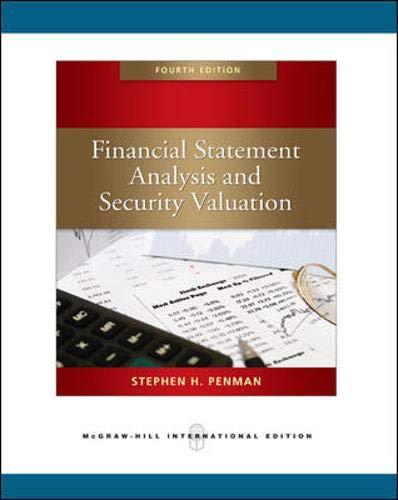E6.11. Plotting Earnings Implied Growth Rates for the S&P 500 (Medium) This exercise extends the reverse engineering
Question:
E6.11. Plotting Earnings Implied Growth Rates for the S&P 500 (Medium) This exercise extends the reverse engineering example for the S&P 500 in this chapter. At the end of 2003, the S&P 500 index stood at 1000. The chief economist of a leading Wall Street investment bank was forecasting 2004 camings for the S&P stocks of $53.00 and $58.20 for 2005. These earnings estimates are in the same units as the index, so the econo- mist's forward P/E ratio for the index was $1,000/$53-18.87. The payout ratio for the S&P 500 was 31 percent at the time and the economist estimated a market risk premium of 5 per- cent over the 10-year Treasury rate of 4 percent. From the text, you will understand that, given the economist's forecasts, the stock mar- ket was forecasting an ABG growth rate for the S&P 500 of 3.9 percent after 2005. What were the (ex-dividend) earnings growth rates for the years 2006, 2007, and 2008 forecasted by the stock market at the end of 2003? What were the cum-dividend earnings growth rates? Assume that the 31 percent payout will be maintained in the future.
Step by Step Answer:

Financial Statement Analysis And Security Valuation
ISBN: 9780071267809
4th International Edition
Authors: Penman-Stephen-H, Steven Penman





